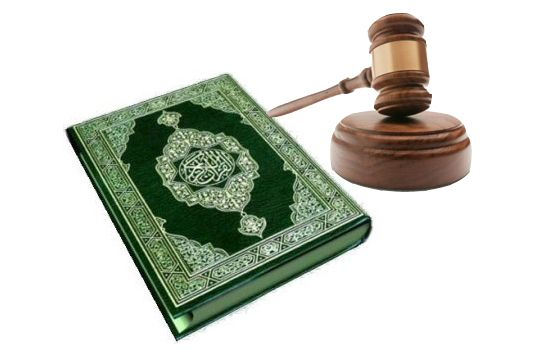Understanding Guardianship in Muslim Law
In Muslim Law, the concept of a guardian (Arabic: Wali) is of profound importance as it ensures the protection of the person and property of a minor. A guardian is a person who is legally authorized to take care of a minor’s person, property, or both, and to make decisions in the best interest of the child. According to Section 4(2) of the Guardians and Wards Act, 1890, a “guardian” means a person having the care of the person of a minor or of his property or both.
Muslim Law lays special emphasis on guardianship because it recognizes that a minor (Sagir) is not competent to manage his or her own affairs. The underlying principle is protection and welfare of the minor. The Holy Quran and Prophet Muhammad (PBUH) also stressed fairness and accountability towards minors. The Quran says, “Do not approach the property of the orphan except in the best manner, until he reaches maturity” (Surah Al-An’am 6:152). Thus, guardianship in Islam is both a legal duty and a sacred trust, governed by love, care, and justice.
Legal Basis of Guardianship under Muslim Law
The law of guardianship in India is governed by two systems — Muslim Personal Law (Shariat) and the Guardians and Wards Act, 1890. While Muslim law defines the personal and religious aspects of guardianship, the 1890 Act provides statutory backing for appointment, control, and removal of guardians through civil courts.
Under Muslim Law, guardianship (Wilayat) applies primarily to three areas:
- Guardianship of the person (care, custody, and upbringing of the minor),
- Guardianship of property (management of the minor’s movable and immovable property), and
- Guardianship in marriage (authority to contract a valid marriage on behalf of the minor).
Muslim jurists divide guardians into categories based on their authority, source of appointment, and nature of control. This division ensures clarity and prevents misuse of power.
Definition of Guardian under Muslim Law
A guardian under Muslim law is a person entrusted with the responsibility of protecting and supervising a minor—either his person or property—until the minor attains puberty or majority. The concept emerges from the assumption that a minor lacks full legal capacity to safeguard his own interests.
Under Section 4(2) of the Guardians and Wards Act, 1890, a guardian includes:
- A natural guardian,
- A guardian appointed by the will of a parent or legal guardian,
- A guardian appointed by a court, and
- A person who has taken care of the minor without any formal authority (de facto guardian).
Thus, the guardian functions as a protector and decision-maker, ensuring the minor’s welfare in all aspects of life — moral, educational, and financial.
Kinds of Guardians under Muslim Law
Muslim law classifies guardians into four main types, depending on the source of their authority and the scope of their powers:
1. Natural Guardian (Wilayat-ul-Nafs)
A natural guardian is the person who has the legal right and duty to take care of the minor’s person. According to Islamic law, the father is the first natural guardian of a legitimate child. After his death, the guardianship passes to the executor appointed by the father (Wasi).
If the father and executor are both absent, the guardianship of the person passes to the paternal grandfather, and then to his executor. The mother is entitled to custody (Hizanat) of minor children, especially in early years, but she is not considered a legal guardian of property.
Relevant Case: In Imambandi v. Mutsaddi (1918), the Privy Council held that the mother is not the natural guardian of her child’s property, though she may have custody of the person of the child.
2. Testamentary Guardian (Wasi)
A testamentary guardian is one who is appointed by a will (wasiyat) of the father or paternal grandfather. The appointment becomes effective only after the death of the person who made the will.
A father can appoint any person as the testamentary guardian of his minor children. The mother, under Sunni law, has no such power, but under Shia law, both parents can appoint a testamentary guardian.
Example: If a Muslim father dies leaving behind a minor son, and he had appointed his brother as a guardian through a will, the brother becomes the testamentary guardian of that child’s person and property.
3. Guardian Appointed by the Court (Statutory Guardian)
When no natural or testamentary guardian exists, the District Court can appoint a guardian under the Guardians and Wards Act, 1890. Such a guardian is called a statutory guardian.
The court’s primary concern is the welfare of the minor as per Section 17 of the Act. The court considers the child’s age, sex, religion, and the character and capacity of the proposed guardian.
Example: If both parents die and there is no appointed guardian, the court can appoint a suitable person—preferably a close relative—to take care of the child’s education, health, and property.
4. De Facto Guardian
A de facto guardian is a person who has taken charge of a minor’s person or property without legal authority. This person manages the affairs of the minor voluntarily. However, under Muslim law, a de facto guardian has no legal right to transfer or sell the minor’s property.
Legal Provision: The Muslim Personal Law (Shariat) Application Act, 1937 makes it clear that no person who is not a legal guardian can transfer the property of a minor.
Case Reference: In Mohammad Amin v. Vakil Ahmad (1952), the court held that a de facto guardian’s transfer of property is void, not merely voidable.
Removal of Guardian under Muslim Law
A guardian can be removed from his position under certain circumstances if his continuation is found contrary to the welfare of the minor. The power of removal lies with the District Court under Section 39 of the Guardians and Wards Act, 1890.
The main grounds for removal include:
- Misconduct or abuse of authority: If the guardian misuses the minor’s property or acts dishonestly.
- Neglect of duty: If the guardian fails to protect the person or property of the minor.
- Incapacity: Physical or mental unfitness to perform guardianship duties.
- Change in religion: If the guardian converts to another religion and that affects the minor’s welfare.
- Conflict of interest: When the guardian’s personal interests clash with the minor’s best interests.
- Removal necessary for welfare: The overarching principle under Section 17 and Section 39 is always the welfare of the minor.
Case Law: In Mt. Siddiqun Nisa v. Nizamuddin (1932), the court removed a guardian who misappropriated the minor’s funds, reaffirming that the minor’s welfare is the supreme consideration.
Judicial Perspective on Guardianship and Welfare of the Minor
The Indian judiciary has consistently held that the welfare of the minor is the guiding principle in all guardianship matters. The Supreme Court in Githa Hariharan v. Reserve Bank of India (1999) recognized that even mothers can act as natural guardians in certain circumstances, reflecting the spirit of equality under Article 14 of the Constitution of India.
Thus, while Muslim law provides a religious framework for guardianship, the courts ensure that such provisions align with constitutional morality and child welfare.
Mnemonic to Remember – “NTCD R” (Natural Talent Creates Development & Responsibility)
N – Natural Guardian
T – Testamentary Guardian
C – Court-appointed Guardian
D – De facto Guardian
R – Removal Grounds (Misconduct, Neglect, Incapacity, Religion, Welfare)
Mnemonic Tip: Remember “Natural Talent Creates Development & Responsibility” to easily recall the types and removal grounds of guardians under Muslim Law.
About lawgnan:
To explore a detailed explanation of Guardianship in Muslim Law, visit Lawgnan.in — your trusted legal learning platform. Understand how Muslim law defines the rights, duties, and responsibilities of guardians over a minor’s person and property. Learn about natural, testamentary, court-appointed, and de facto guardians, supported by landmark cases like Imambandi v. Mutsaddi and Mohammad Amin v. Vakil Ahmad. Lawgnan provides structured, easy-to-read notes aligned with academic and judicial interpretations. Enhance your preparation for exams or practice with reliable, expert-drafted content on family law topics. Visit now to deepen your legal understanding with Lawgnan.




